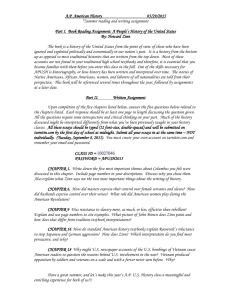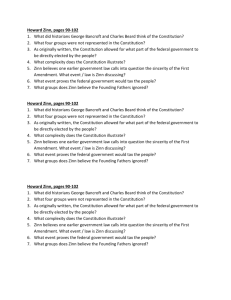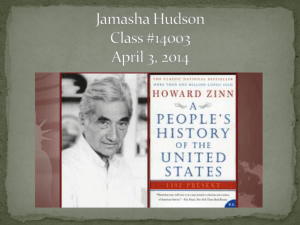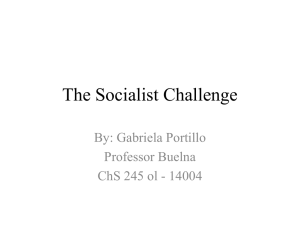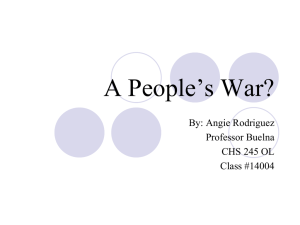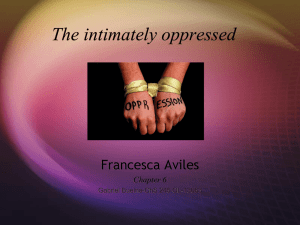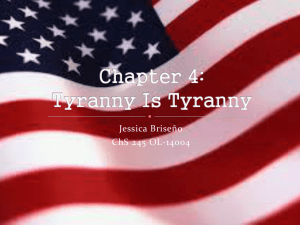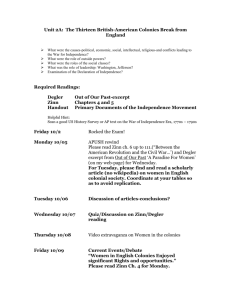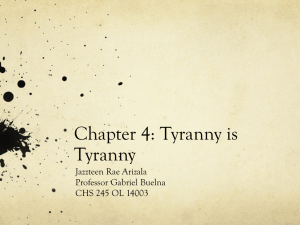ZINN CHAPTER 5.2
advertisement
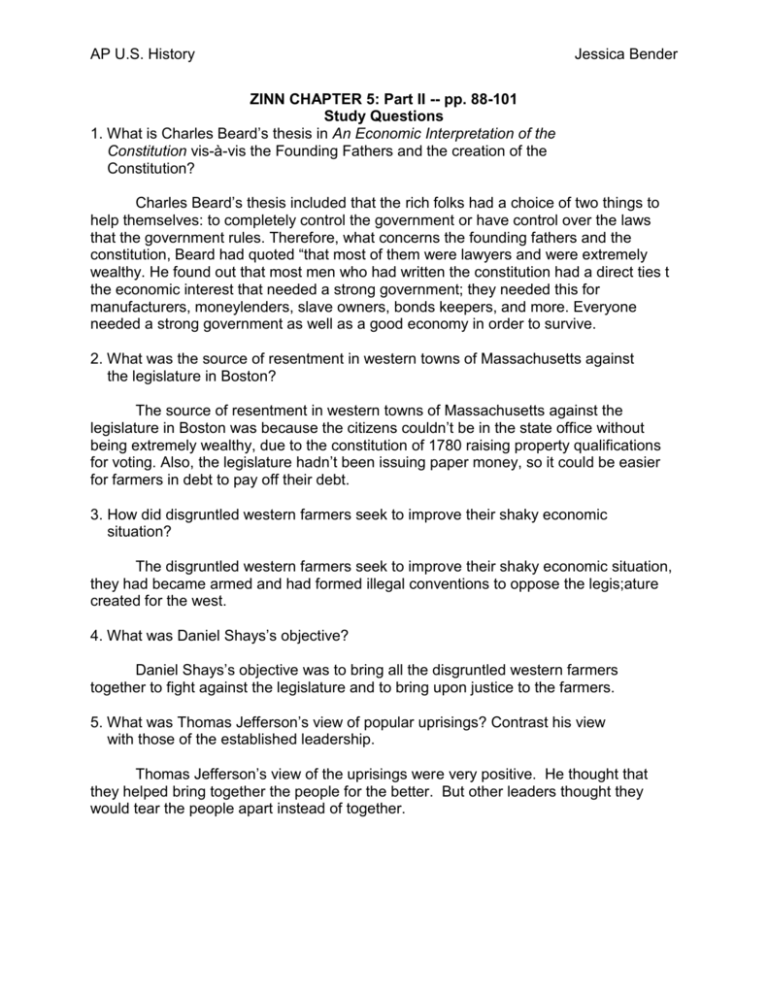
AP U.S. History Jessica Bender ZINN CHAPTER 5: Part II -- pp. 88-101 Study Questions 1. What is Charles Beard’s thesis in An Economic Interpretation of the Constitution vis-à-vis the Founding Fathers and the creation of the Constitution? Charles Beard’s thesis included that the rich folks had a choice of two things to help themselves: to completely control the government or have control over the laws that the government rules. Therefore, what concerns the founding fathers and the constitution, Beard had quoted “that most of them were lawyers and were extremely wealthy. He found out that most men who had written the constitution had a direct ties t the economic interest that needed a strong government; they needed this for manufacturers, moneylenders, slave owners, bonds keepers, and more. Everyone needed a strong government as well as a good economy in order to survive. 2. What was the source of resentment in western towns of Massachusetts against the legislature in Boston? The source of resentment in western towns of Massachusetts against the legislature in Boston was because the citizens couldn’t be in the state office without being extremely wealthy, due to the constitution of 1780 raising property qualifications for voting. Also, the legislature hadn’t been issuing paper money, so it could be easier for farmers in debt to pay off their debt. 3. How did disgruntled western farmers seek to improve their shaky economic situation? The disgruntled western farmers seek to improve their shaky economic situation, they had became armed and had formed illegal conventions to oppose the legis;ature created for the west. 4. What was Daniel Shays’s objective? Daniel Shays’s objective was to bring all the disgruntled western farmers together to fight against the legislature and to bring upon justice to the farmers. 5. What was Thomas Jefferson’s view of popular uprisings? Contrast his view with those of the established leadership. Thomas Jefferson’s view of the uprisings were very positive. He thought that they helped bring together the people for the better. But other leaders thought they would tear the people apart instead of together. AP U.S. History Jessica Bender 6. Why does Zinn state that democracy’s problem in post-Revolutionary America was not primarily due to Constitutional limitations on voting? Zinn states that democracy’s problem in post-Revolutionary America was not primarily due to the Constitutional limitations on voting because the problems were more towards the social classes. The difference between the rich and the poor was more troubling than the limitations on voting. 7. How is Zinn critical of Madison’s argument in Federalist X. Zinn is critical of Madison’s argument in Federalists X because Madison thinks that the government was created only to maintain peace in America. But Zinn thinks it is more than what Madison is saying. 8. Why does Zinn assert that despite party differences among Federalists and Democratic-Republicans they were both fundamentally similar? Zinn says that federalists and democratic-republicans are both fundamentally similar because both sides wanted a stable government. And both believed that it would be more stable if instead of one party there were two agreeing on plans. 9. How does Zinn characterize the Constitution’s compromises? Zinn characterizes the constitution’s compromise by different ideas from the North and south. The North wanted economic laws while the South wanted laws regarding their slaves. 10. How does Zinn refute one of Beard’s critics, Robert E. Brown? Zinn refutes one of Beard’s critics, Robert E. Brown, because Brown says tht property should be owned by the American. But Zinn thinks that this is wrong because maqny people ownb land, and there are others who own more land than others do. 11. How does the Constitution illustrate the complexity of the American system? The constitution illustrates the complexity of the American system by helping the middle and wealthy class. But of course the government helps the wealthier portion of America more. 12. How does the Constitution’s contract clause or tax clause favor rich over poor? The Constitution’s contract clause or tax clause favor rich over the poor because they knew the rich would be more likely to pay taxes. But more taxes were created for the poor than for the rich. AP U.S. History Jessica Bender 13. How does Zinn argue the First Amendment is not as stable as one might assume? Zinn argued the first Amendment is not stable as on might assume because the government doesn’t care about the First Amendment if people are rioting against them. So Zinn thinks that the First Amendment is silly since you can still go to prison for speaking out about the government of president. 14. How does Zinn contrast the government’s enforcement of the First Amendment and the power to tax? Zinn contrasts the government’s enforcement of the first Amendment and the power to tax because they are basically the same government as they had in England. If people spoke out they were put in prison, and the taxes were the same. 15. How does Zinn refute Bernard Bailyn’s view of the creation of the Constitution. Zinn refutes Bernard Bailyn’s view of the creation of constitution was that it was only created to help them and not the actual people of America.
